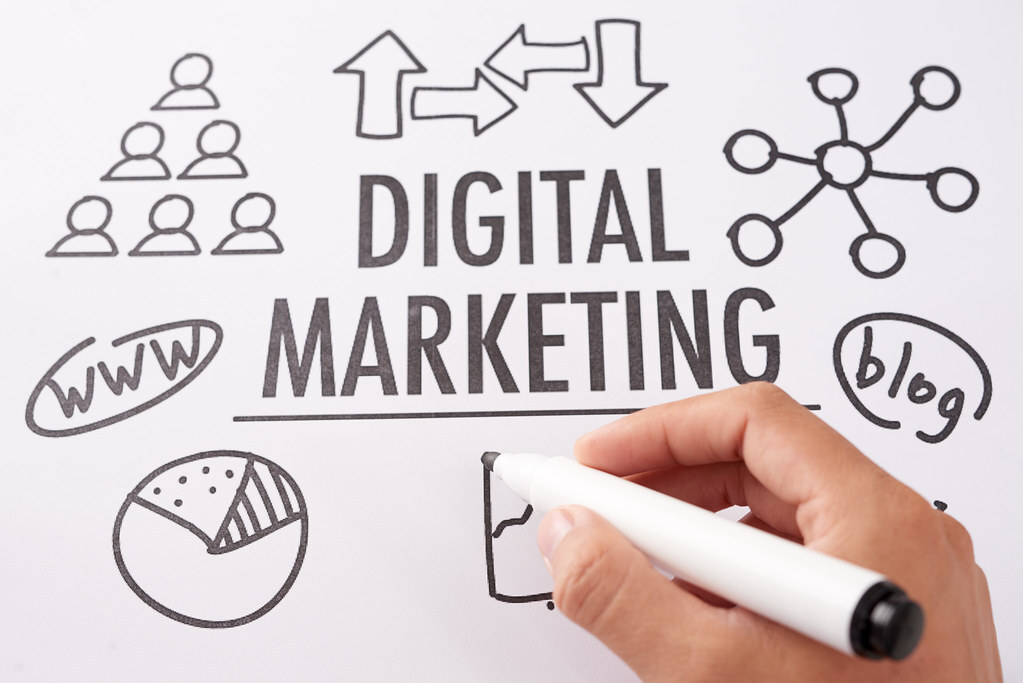What is Digital Marketing? Understanding the Basics.
Introduction to Digital Marketing
Digital marketing has emerged as a cornerstone of modern business strategies, revolutionizing the way companies connect with their audience. In this comprehensive guide, we delve into the essence of digital marketing, exploring its definition, key components, and its profound impact on contemporary business landscapes.
Defining Digital Marketing
At its core, digital marketing encompasses a broad spectrum of online strategies and tactics aimed at promoting products, services, and brands through digital channels. Unlike traditional marketing methods, digital marketing leverages the power of the internet to reach and engage target audiences more effectively.
The Evolution of Digital Marketing
Digital marketing has evolved significantly since its inception, adapting to the ever-changing digital landscape. Initially centered around websites and email campaigns, it now incorporates a diverse range of platforms and technologies, including social media, search engines, mobile applications, and more.
Key Components of Digital Marketing
- Search Engine Optimization (SEO): SEO plays a pivotal role in digital marketing by optimizing websites to improve their visibility and ranking on search engine results pages (SERPs). It involves various strategies such as keyword research, on-page optimization, and link building to enhance organic traffic.
- Content Marketing: Content lies at the heart of digital marketing, serving as a vehicle to deliver value, establish authority, and engage audiences. Content marketing involves creating and distributing relevant, informative, and compelling content across multiple channels to attract and retain customers.
- Social Media Marketing: With the proliferation of social media platforms, social media marketing has become indispensable for businesses seeking to connect with their target demographic. It entails leveraging platforms like Facebook, Instagram, Twitter, and LinkedIn to engage audiences, build brand awareness, and foster relationships.
- Email Marketing: Despite the rise of newer marketing channels, email marketing remains a potent tool for nurturing leads and driving conversions. It involves sending targeted messages to subscribers' inboxes, delivering personalized content, promotions, and updates.
- Pay-Per-Click (PPC) Advertising: PPC advertising enables businesses to display ads on search engines and other digital platforms, paying only when users click on their ads. It offers precise targeting options, real-time tracking, and measurable results, making it an integral part of digital marketing campaigns.
- Analytics and Data Insights: Data-driven decision-making lies at the heart of effective digital marketing strategies. By leveraging analytics tools and data insights, businesses can track performance, identify trends, and optimize their campaigns for maximum impact.
The Benefits of Digital Marketing
- Global Reach: Unlike traditional marketing methods, digital marketing allows businesses to reach a global audience with minimal investment.
- Targeted Advertising: Digital marketing enables precise audience targeting, ensuring that messages are delivered to the right people at the right time.
- Cost-Effectiveness: Digital marketing often proves more cost-effective than traditional advertising, offering better ROI and measurable results.
- Increased Engagement: With its interactive nature, digital marketing fosters greater engagement and interaction between brands and consumers.
- Data-Driven Strategies: By analyzing data and metrics, businesses can refine their digital marketing strategies for improved performance and effectiveness.
Conclusion
In conclusion, digital marketing represents a dynamic and multifaceted approach to reaching and engaging audiences in the digital age. By embracing the diverse array of strategies and channels it offers, businesses can unlock new opportunities for growth, innovation, and success in an increasingly competitive marketplace.

